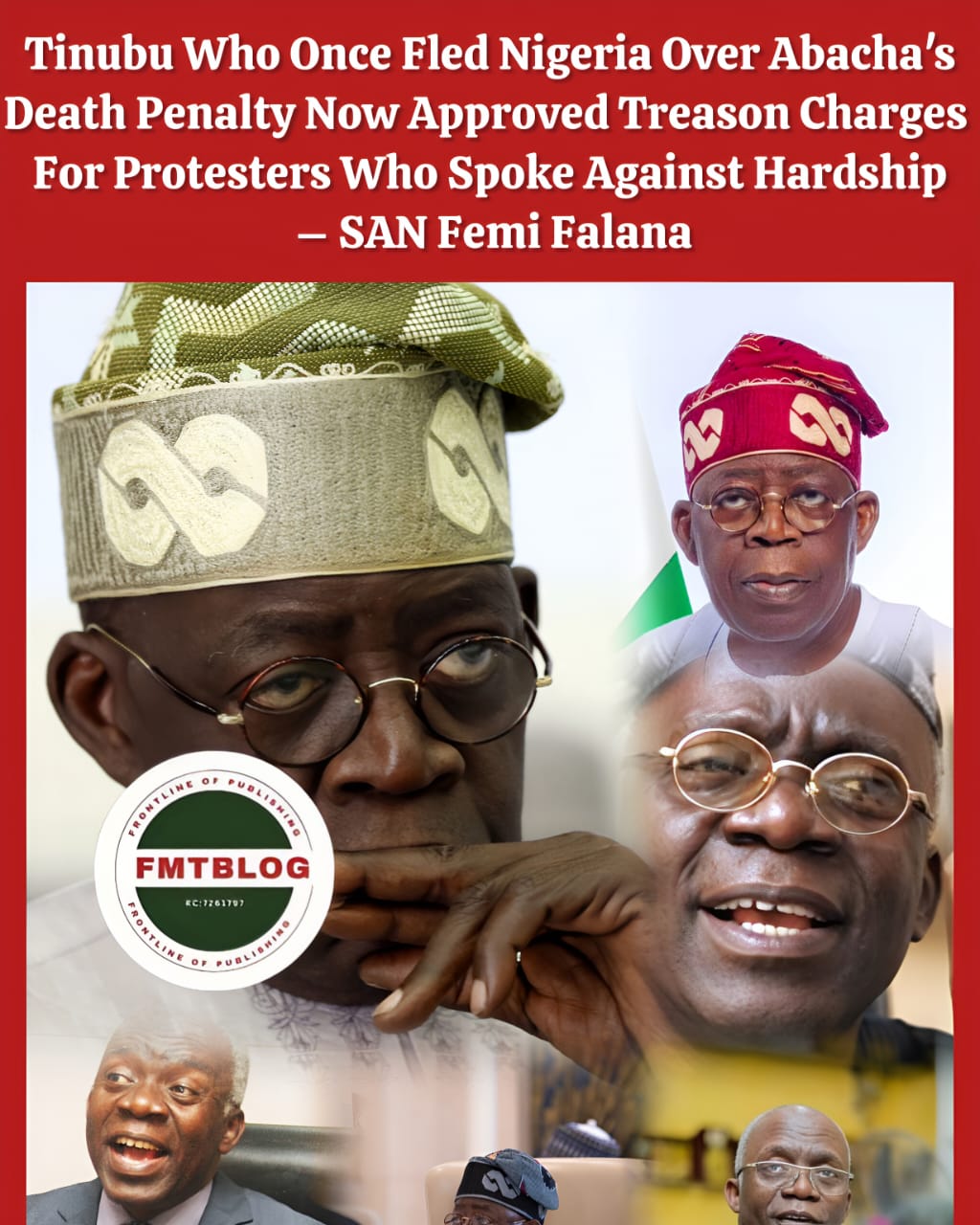
Tinubu, Who Once Fled Nigeria Over Abacha’s Death Penalty, Now Approved Treason Charges For Protesters Who Spoke Against Hardship—Falana
The Senior Advocate said despite the constitutional right to peaceful assembly, police arrested 130 protesters, including 29 minors, and charged them with offenses such as treason and incitement to mutiny.
Nigerian human rights lawyer, Femi Falana, SAN, has criticised the administration of President Bola Tinubu for allowing the Nigerian police to charge peaceful protesters, including minors, with treason and terrorism.
The charges, filed in response to protests against the severe economic hardship attributed to the government’s neoliberal policies dictated by the International Monetary Fund and the World Bank.
Falana, who himself has a long history of advocating for civil rights, highlighted the irony of President Tinubu’s approach, reminding Nigerians that Tinubu himself once fled the country under the regime of General Sani Abacha to escape a death sentence imposed by a brutal dictatorship.
“Today, under Tinubu’s leadership, Nigeria is witnessing similar suppression, with peaceful protesters—including minors—facing charges of treason for opposing economic hardships that have been exacerbated by neoliberal economic policies endorsed by the International Monetary Fund (IMF) and the World Bank.”
In August 2024, protests erupted across Nigeria in response to rising living costs and other economic grievances.
The Senior Advocate said despite the constitutional right to peaceful assembly, police arrested 130 protesters, including 29 minors, and charged them with offenses such as treason and incitement to mutiny.
These charges, Falana argued, are groundless under Nigeria’s Terrorism Prevention Act of 2022, which explicitly excludes protests, demonstrations, and work stoppages from being classified as terrorist acts.
However, an ex parte court order allowed the suspects to be detained for 60 days for further investigation.
Falana condemned the strategy as an attempt by the government to intimidate citizens and stifle dissent.
“The Federal Government set out to use the case of the 130 protesters to discourage Nigerian people from protesting against the harsh living conditions,” he stated.
He added that the global condemnation of the charges eventually pressured the government into abandoning the prosecution, yet the incident has raised questions about Nigeria’s commitment to upholding democratic values.
Falana urged the Nigerian government to redirect its focus toward protecting peaceful demonstrators rather than prosecuting them.
“Instead of exposing the country to avoidable shame by charging protesters with a crime punishable by death,” he argued, “the police should comply with the law by providing security for peaceful assemblies.”
He added that respecting citizens’ rights to assemble is essential to fostering a democratic society.
saharareporters



